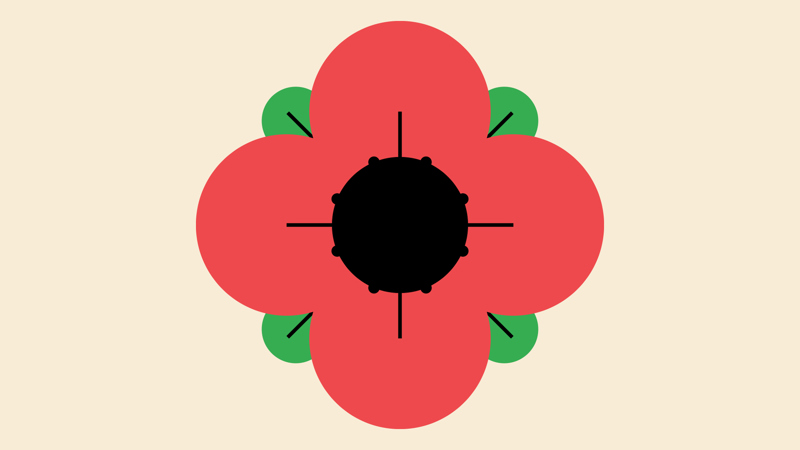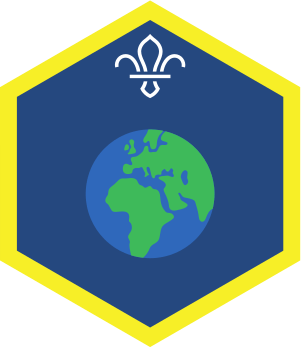
Go on an acts of service scavenger hunt
You’ll need
- A large collection of newspapers and magazines
Before you begin
- Use the safety checklist to help you plan and risk assess your activity. Additional help to carry out your risk assessment, including examples can be found here. Don’t forget to make sure all young people and adults involved in the activity know how to take part safely.
- Make sure you’ll have enough adult helpers. You may need some parents and carers to help if you’re short on helpers.
Remembrance honours people who serve to defend our democratic freedom and way of life. We unite across faiths, cultures and backgrounds to remember the service and sacrifice of the Armed Forces community from the United Kingdom and the Commonwealth. We will remember them.
- We remember the sacrifice of the Armed Forces community from the United Kingdom and the Commonwealth.
- We pay tribute to the special contribution of families and of the emergency services.
- We acknowledge innocent civilians who’ve lost their lives in conflict and acts of terrorism.
Remembrance doesn’t glorify war and its symbol, the red poppy, is a sign of both Remembrance and hope for a peaceful future. Wearing a poppy isn’t compulsory but it’s greatly appreciated by those who it’s intended to support. When and how you choose to wear a poppy reflects your individual experiences and personal memories.
Remembrance unites people of all faiths, cultures and backgrounds, but it’s also deeply personal. It could mean wearing a poppy in November, joining with others in your community on a commemorative anniversary, or taking a moment on your own to pause and reflect. Everyone’s free to remember in their own way or to choose not to remember at all.
- Armistice Day is the 11 November. It marks the armistice agreement that bought an end to the fighting of the first world war.
- People pause at 11am on the 11 November to remember service and sacrifice past and present.
- The national service of Remembrance happens on the closest Sunday to 11 November, which is known as Remembrance Sunday. Each year people gather at the Cenotaph in London and other memorial sites.
- We call the whole period around these dates Remembrance. There are many ways to take part in Remembrance.
In 2022, the Royal British Legion remembers the Service of those who work to protect us and our ways of life. Whether in the Armed Forces, Emergency or Civilian Services, past or present, we remember who has served, how they served and why it’s important that we continue to remember them.
Planning this activity
- Check through your newspapers and magazines to filter out any inappropriate content.
- You may want to check the newspapers and magazines to see if they have the needed content, too.
Learning about Remembrance
- Gather everyone together.
- Take a moment to discuss Remembrance. Ask if anyone knows what it is and why we mark it.
- Ask if anyone knows what acts of service or service means. Explain that service or acts of service means helping someone, aid or benefit someone, lending a hand, or doing a good deed. It benefits an individual or a community, or even a country.
- Ask how people think service or act of service is linked with acts of Remembrance. Lots of people gave their lives to help their country and for the benefit of others.
- Ask everyone to close their eyes and think back over the last week, the last month and the last year. Ask them to think about the different people who’ve helped them. Who has helped us? What did they do?
- Now, ask everyone what acts of service do they think they do? How do they help to serve people in school, at home, their friends, at Scouts and in their local community? Has anyone done anything today or yesterday to help someone?
- Looking to the future, can they think of anything they can do tomorrow to help someone?
Play the game
- Split everyone into equal groups.
- Hand each group a handful of newspapers and magazines
- Explain that you’re going to do a scavenger hunt in the newspapers and magazines. They’ll be trying to find people who serve and help our local communities.
- An adult volunteer or young leader will call out something to find. The groups must look through their papers to find a matching article, advert or photo, or similar, for that job role or person.
- Once they've found it, they then need to get that page to the front of the room as quickly as possible.
- The first group to find and bring the item could be the winner, getting a point for their team.
- To make sure the game is accessible and fair to all, groups and could nominate a runner to take all the items. Teams could also get a point for each person or job role they find without the racing element.
Here are some things you can ask the young people to find. You can add any others that you can think of.
- Nurse
- Social worker
- Doctor
- Paramedic
- Lifeguard
- Teacher
- Charity worker
- Homelessness charity
- Veteran
- Volunteer
- Young carer
- Lollipop person
- Vet
- Paramedic
- Road worker
- Mountain rescuer
- Food banks
- Social worker
- Caretaker
- Refuge collector
- Surgeons
- Opticians
- Physiotherapists
- Supermarket worker
- Postal worker
- Dentists
- Librarian
- Fundraiser
- Firefighter
- Police officer
- Coastguard
- Aid worker
- The winner is the team with the most points.
- When the game is over, bring the group together and look at all the pictures the teams have gathered. What do they all have in common?
- Ask everyone to close their eyes and think back over the last week, the last month and the last year. Ask them to think about the different people who’ve helped them. Who has helped us? What did they do? How do we say thanks to these people? If anyone wants to share their example, ask them to put their hand up to tell the group.
- Now, ask everyone what acts of Service do they think they do? How do they help people in school, at home, their friends, at Scouts and in their local community? Has anyone done anything today or yesterday to help someone?
Reflection
This activity shows us just how many people are providing acts of Service every day. Think carefully about why people take on these jobs.
Why’s it important to say thank you? How can we show appreciation for what they do? How can we support them in return?
This activity is intrinsically linked with acts of Remembrance. We will still remember the service and sacrifice of those who served their country and protected us, along with those who continue to serve and protect us.
Safety
All activities must be safely managed. You must complete a thorough risk assessment and take appropriate steps to reduce risk. Use the safety checklist to help you plan and risk assess your activity. Always get approval for the activity, and have suitable supervision and an InTouch process.
- Active games
The game area should be free of hazards. Explain the rules of the game clearly and have a clear way to communicate that the game must stop when needed. Take a look at our guidance on running active games safely.
You may want to ask the children to find objects associated with the profession instead of a picture of a person. For example, they could find a stethoscope instead of a doctor.
Reducing the number of newspapers or magazines that the young people have access to can make it harder.
This game can be played around a small table with the teams all helping one another.
If people may struggle to find the items in a newspaper or magazine, they could have a selection of pre-selected images to choose from.
You could adapt the competitive element so everyone can be involved and without needing to run. Instead of a race where the fastest person gets the point, people could get a point for bringing a matching image within a set time or within that round.
Someone could take on the role of being caller and help to call out the jobs that people need to find in the newspaper if they don’t want to be involved in the scavenger hunt element.
All Scout activities should be inclusive and accessible.
Ask everyone to think of some ideas to say thanks to some of the people who serve us. Why not vote to choose one and do it later in the year.

